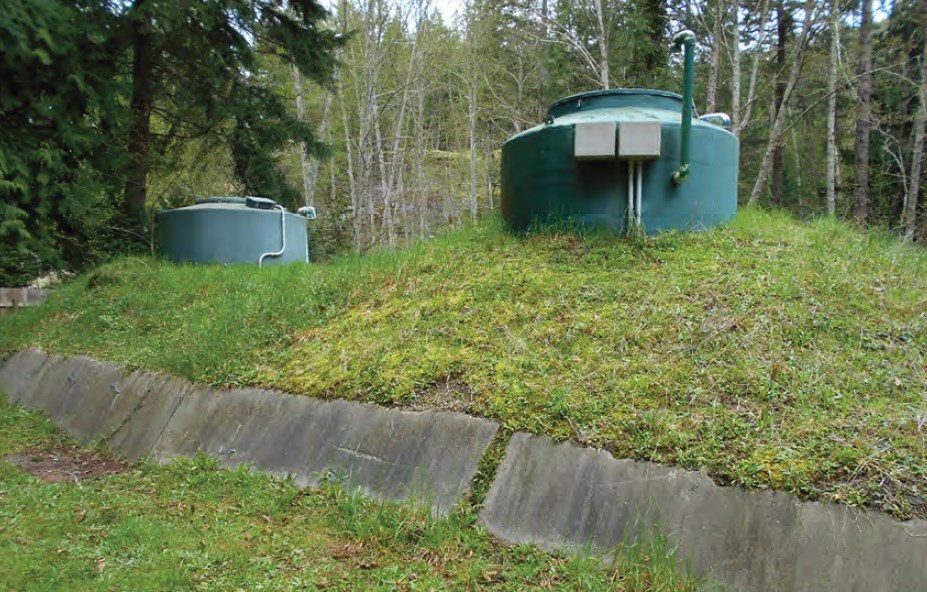Aging infrastructure at several wastewater treatment facilities and an expected large increase in fees and taxes to cover repairs have Sunshine Coast Regional District (SCRD) directors looking for ways to reduce the looming expenses.
“Can we give them back?” asked Area A director Leonard Lee at a Nov. 28 corporate committee meeting following a staff update on the status of 17 wastewater treatment facilities, which serve fewer than 1,000 properties from Pender Harbour to Langdale.
Directors laughed in response to Lee’s question, but they ultimately voted unanimously on a motion that would see staff assess the feasibility of doing just that.
A recent review of the facilities, which was presented at the meeting, concluded that “the rapid growth” of the number of wastewater systems for which the regional district is responsible “has outpaced funding and maintenance capacity.”
Six of the systems “require significant capital renewal within the next 10 years to meet regulatory requirements,” but the amount collected from user fees and parcel taxes is “not financially sustainable.”
Directors were first publicly confronted with the problems with the facilities in 2018. First a CAO report mentioned “a significant gap in the delivery of services,” which was followed by another report outlining the extent of the problems, including a Ministry of Environment warning letter that found non-compliance issues at the Woodcreek wastewater treatment facility in Area E. User fees for all systems increased by 25 per cent in 2019 and parcel taxes increased by two per cent.
Last Thursday’s update established that the estimated replacement value of all the systems is $31 million, and due to increases in construction costs, that value is expected to triple by 2040. The reserves for each system, however, range between zero and six per cent of the systems’ replacement values.
“We can anticipate replacement costs growing exponentially; however, it’s not likely the number of parcels within a service area is going to change at all,” explained asset management coordinator Darren Joseph, who presented findings from the review.
The update also found that components of the Greaves Road, Square Bay, Curran Road, Roberts Creek, Woodcreek Park and Langdale wastewater treatment systems are in poor condition and the remaining useful life of some of these and others is dwindling. At the Greaves Road facility, for example, “sewage is bubbling up on the shoulder of the road,” staff said.
A new wastewater coordinator technician was hired to improve service, but the position isn’t sufficient to meet optimal service levels, according to the report.
To avert capital funding shortfalls, the review included suggestions for making up the difference, which would amount to immediate and dramatic increases to user fee and parcel taxes in 2020, depending on the system.
For example, to establish optimal service delivery for Lee Bay users, which serves the most properties, parcel taxes would climb to $2,100 from $100 in 2019, though user fees would remain at approximately $400.
Others would see user fees more than double in addition to large increases to parcel taxes.
Directors have yet to vote on any increases for 2020 and beyond.
These were among the issues that prompted directors to ask about why the SCRD owns the facilities in the first place.
According to infrastructure services manager Remko Rosenboom, it was the “will of the board” at the time to be responsible for wastewater systems, the majority of which were taken over by the SCRD in the last 15 years.
A bylaw requires that the SCRD take over sewage systems designed to accommodate more than 22,700 litres of effluent per day from residential and non-residential developments, unless zoned industrial. As the permit holder, the SCRD is responsible for ensuring systems requirements are met.
Directors voted unanimously on a motion for staff to explore mechanisms for how the SCRD takes over wastewater systems, what’s required to return the wastewater treatment plants to third parties, and determine whether it’s possible for a lot to be removed from a wastewater service.
Options for sustainable funding strategies are also expected to be brought before the board in January.
During the discussion, Sechelt director Darnelda Siegers raised the need for a communication plan to get the information out to homeowners, and also realtors. “If somebody is buying into one of these properties, and there’s a potential large outlay that’s going to be required, all parties – homeowner, regional district, realtors, et cetera – could be liable,” she said.



